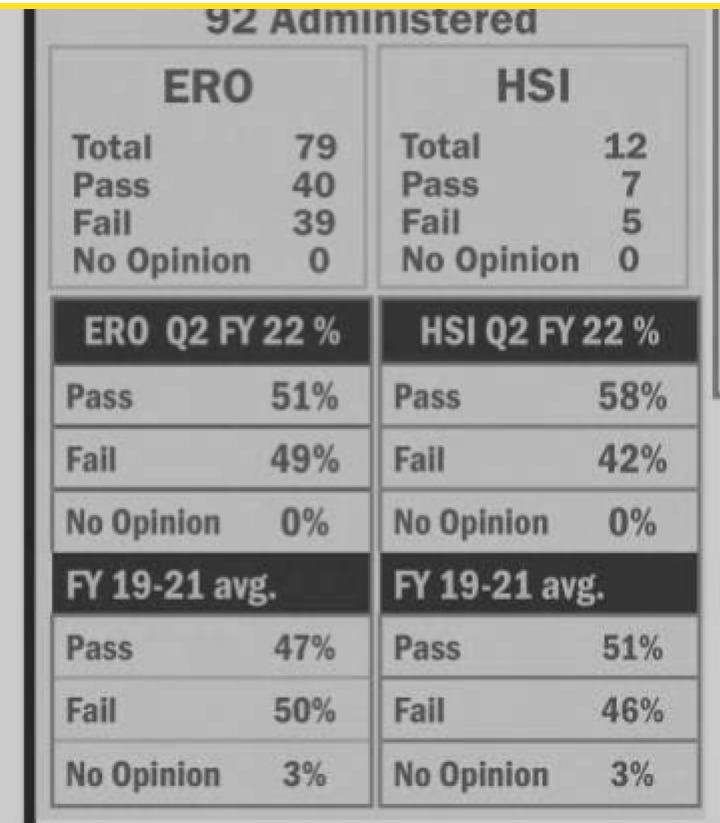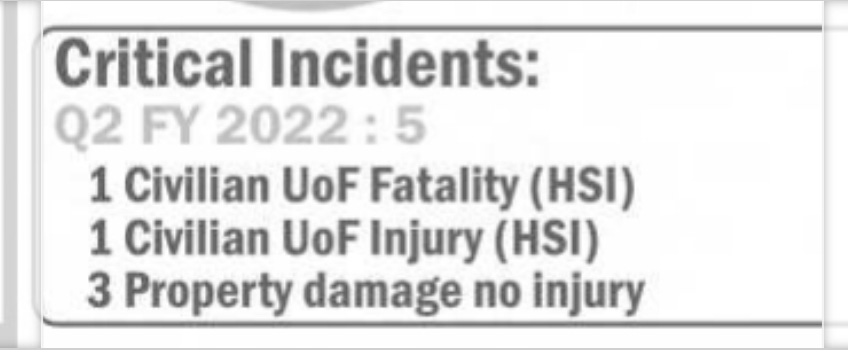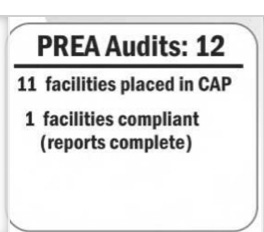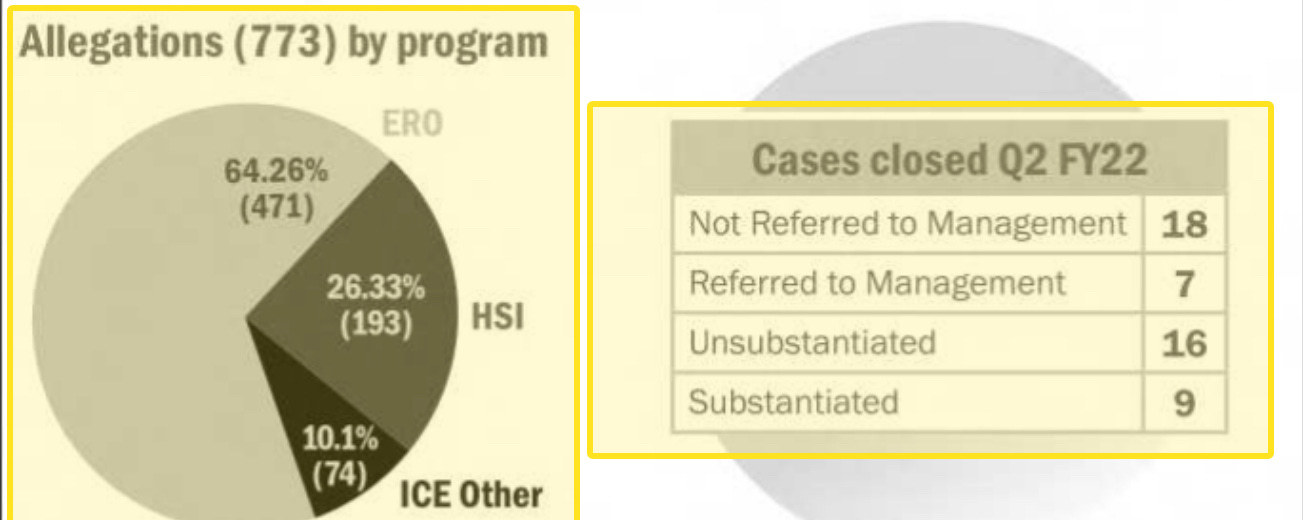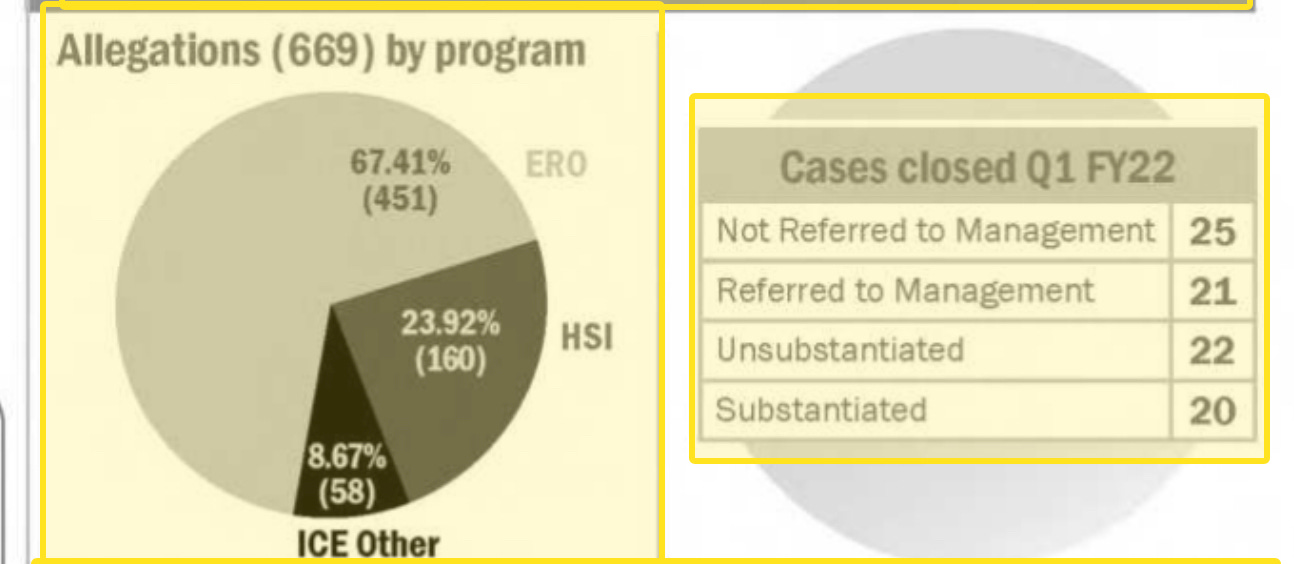Dashboard Confessionals - #FOIAFriday Vol. 2022-6
Highlighting developments in some of the more than 150 active #DetentionKills Transparency Initiative FOIA experiments.
This week for #FOIAFriday, we’ll unpack some new developments at the agency level. In later weeks, we’ll share FOIA litigation updates. And in December, we’ll release a year-end review and report card.
In the meantime, this post is for FOIA nerds and nerds-in-the-making. Our scrappy little project maintains a FOIA request docket with over 150 active information demands against the federal government, backed up by multiple federal lawsuits filed with and by our #DetentionKills Network partners.
We’ll begin with a word about our project’s methodology.
#DetentionKills Transparency Initiative: Core Tenets
We believe information is power.
We know better than to believe systems of power that withhold information.
We believe power, including the power of information, belongs with the people. Specifically, it belongs with organized communities resisting state violence, led by and for the people most directly impacted by this violence.
We believe finding new and more effective ways of accessing and revealing the information state systems of oppression try and hide from us about the harms they inflict can form an essential part of organized resistance to, and ultimately removal of those harms.
We believe identifying and exposing the very structures of secrecy and obfuscation—the systemic architecture and the legal and practical mechanisms by which public information is made inaccessible—is a form of solidarity with collective popular resistance to state violence, and a measure of harm reduction.
We believe a factual record of state and corporate violence matters not just to our present-day struggles, but to those of future generations of organized resisters and would-be world-changers.
We believe a clear, accurate, and shared vision of the reality we are all experiencing is a vital foundation on which to build a more just future together, and it’s in part through FOIA that we develop and solidify that foundation.
We believe FOIA is a tool for shifting the power information confers from violent state machinery to the people at the center of this violence. Importantly: It’s only one tool, which exists in parity alongside open-source information gathering, whistleblowing, attendance at public meetings, and organized, non-violent protest
We believe in engaging tools and processes for change that work better when we do them more, and that are accessible to everyone, regardless of professional status, legal status, class, race, nationality, gender, and, indeed, physical location in the world. We believe FOIA is one such tool.
We believe FOIA is a group project: As MK teaches us constantly: Anything worth doing is worth doing together. That’s why we do FOIA publicly on MuckRock and share results immediately on social media, generally without media embargoes, and the extractive commodification of public information these exclusivity agreements sometimes entail. But we understand why these measures are sometimes necessary — as when time will allow for expert review that gives context and power to the raw information in records. Wherever possible we try and coordinate with requestors who’ve already gotten information to see if the state’s story lines up. That’s why we make requests together.
We believe survivors of state violence when they raise allegations of harm. Because we believe them, we also believe that corroborating their stories, or showing the efforts of the state violence regime to erase them, helps support people in struggle. Seeking these records is a way of holding space for people in struggle to organize; to power-map; to target-select; to formulate and pursue demands; to understand the effectiveness of competing intervention alternatives; to cut through propaganda and misinformation often spouted by government apparatchiks; to escalate; to win; to hold and build on wins; to thrive.
FOIA forms a core part of our work because it’s something we can do far more easily than people locked in or locked out by violent state systems. We believe this work can materially and directly benefit those people in their shared struggles.
For our project, FOIA puts the “Find Out” in “F-A-F-O-.”
FOIA Activity This Week
New FOIA Activity: 21
New Requests filed: 3
Aurora Detainee Reporting Information Line (DRIL) Calls
NB: This is a facility-specific clone of this request that yielded this data set.
DHS Significant FOIA Activity for August, September, & October 2022
NB: This is a clone of this April 2022 request that yielded this data set
New Appeals: 1
ICE Director Dashboards Appeal
Challenging ICE’s practice of password-protecting public information.
New Records Sets Obtained: 2
Director Dashboard - June 2022 2022-ICFO-23103
Filed: July 6, 2022
Records Sought: “ICE Director Dashboard materials for Feb. 2022-Jun. 2022.”
ICE Director Dashboard materials are compilations of key metrics from an agency component’s systems of records that are then forwarded in a single, easily consumable page for ICE’s Acting Director. We learned of them through records obtained in Jean Jimenez’s FOIA suit, Chaverra v. ICE (D.D.C filed Feb. 2018). In this response, we received Director Dashboards for Q1 and Q2 of FY22.
Highlights / New FOIA Leads
OPR closed one investigation of senior member of ICE leadership during Q2 2022, and opened another:
OPR Documented an ICE ERO Civilian Fatality in Critical Incidents during Q1:
and another fatality by HSI during Q2 FY22:
ICE ERO Officers had a 50% Fail rate during OPR-Administered polygraph exams in FY19-21:
11 of 12 facilities inspected by OPR did not pass PREA audits in Q2 FY22:
And 60% failed in Q1:
Sort of makes one wonder how seriously one might take ICE’s claims that facilities are rigorously inspected for PREA compliance when denying allegations of, for example, multiple allegations of sexual abuse and mistreatment by a nurse at Stewart Detention Center.
Perhaps not unrelated, OPR received 25 Staff-on-Detainee Sexual Assault Allegations during Q2 FY22:
These sexual assaults are categorized as “Management Inquiries”—meaning they’re not “retained” for independent investigation by OPR, but rather, foisted into a separate, less independent process.
Of the cases OPR closed in Q2 FY22, only 9 were substantiated
That’s down from Q1, which saw 20 closed, substantiated investigations:
OPR opened an investigation into an HSI agent involved in the physical abuse documented during the Bean Station, Tennessee workplace raid (which was the largest in the country at that point in the Trump regime), which ultimately cost taxpayers $1.2M in settlement payouts. Video of the likely source of those allegations is available here.
So many follow-up FOIA leads on this one. So little time. Suffice it to say, we’re not finished.
Re-Release Request - 2022-IGFO-00268
Filed August 2022
Records requested: “A true copy of all records released pursuant the request assigned tracking number 2020‐IGFO‐00100.
New Records Received: Using the tried and true FOIA tactic of searching FOIA logs for prior releases that might be of interest but that haven’t, as far as we can tell, been publicly noted, and then seeking those records ourselves, we obtained an old DHS-OIG Report of Investigation (ROI). In this case, we sought records of a Closed DHS-OIG investigation into allegations out of the Adelanto Detention Facility.
The ROI and investigation found the allegation that a guard threw a detained man to the ground unsubstantiated, based on the video:
So we requested the video to see how the man “fell unassisted” when handcuffed:
We do this because in multiple cases where video is reviewed, it doesn’t match was investigators conclude. So, we’ll eventually be able to see whether this conclusion is supported by the video.





